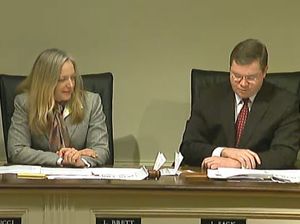Holding Court: Judgement About Collecting

Holding Court is a series by retired Rye City Court Judge Joe Latwin. Latwin retired from the court in December 2022 after thirteen years of service to the City.
What topics do you want addressed by Judge Latwin? Tell us.
By Joe Latwin
So much misinformation!
News sources were loudly proclaiming that the Attorney General was going to chain the doors of Trump Tower and take over 40 Wall Street to satisfy the judgment from the Manhattan court. It don’t work like that!
That the AG didn’t understand this is no surprise. Most cases never get to judgment. They are settled, withdrawn or dismissed well before that. Most cases that do go to trial and result in a judgment, involve a government or an insurance company that will pay the judgment without collection efforts. Thus, many lawyers have no idea how to get a judgment collected. Several years ago, a property owner got a several million-dollar judgment against a Town in Rockland. When the Town did not come forward to pay the judgment, the plaintiff’s lawyer started the process to have the County Sheriff sell the Town park and the Town quickly paid!
Once a judgment is entered, it must be docketed with the County Clerk. If it is a judgment from a Town, Village, or City Court, you need to get a transcript of that judgment and file that transcript with the County Clerk. Upon filing the judgment with the County Clerk, the judgment becomes a lien on the real property owned by the judgment debtor in that county. The judgment may be docketed in any county in New York where the judgment debtor may own real property.
If the judgment debtor does own real estate, the judgment creditor can direct the County Sheriff to levy on the property. Once receiving the proper papers and fees, the Sheriff, after notice to the judgment debtor, can publish a notice of sale, and sell the property at a public auction. The winning bidder will pay the bid price and will receive a Sheriff’s deed to the property. From the proceeds, the Sheriff will take his fees, and pay off the amount of the judgment (including any interest) to the judgment creditor. If the property sells for more than the fees, judgment and interest, the excess is paid to the judgment debtor. If sold for less, the judgment creditor can try to collect the deficiency from other assets. The judgment creditor simply does not walk into the property and take it over.
If the judgment debtor doesn’t own real estate, the Sheriff can be directed to levy on bank or brokerage accounts. The judgment creditor can freeze twice the amount of the judgment and direct the Sheriff to levy on the account. After notice, the Sheriff will levy upon the account and the bank or brokerage house will turn over the funds to pay off the judgment.
The Sheriff can also seize cars, boats, or other personal property to be sold and the proceeds used to pay off the judgment. To collect a judgment from a retail store, I asked a Sheriff to stand by the cash register of the store and take the funds paid to the store as it came in. After a few transactions, the store paid in full!
Lesson, before you go to the time, expense and aggravation of a lawsuit, make sure the person you are suing has assets that can satisfy the judgment you seek. This may require you to keep copies of their checks so you know where their bank accounts are.






